International Tourism Consultancy: Sustainable Development Report
VerifiedAdded on 2023/01/23
|13
|788
|51
Report
AI Summary
This report provides an in-depth analysis of sustainable tourism development, focusing on the rationale for planning within the travel and tourism industry. It examines the benefits for various stakeholders, including the tourism industry, local communities, tourists, and governments. The report delves into the advantages and disadvantages of public-private sector partnerships in tourism planning, using Qatar as a case study to illustrate sustainable practices and their impact on economic growth and community integration. It also highlights the importance of sustainable development strategies and practices to ensure the long-term viability of the tourism sector. The report concludes by summarizing key findings and referencing relevant academic sources.
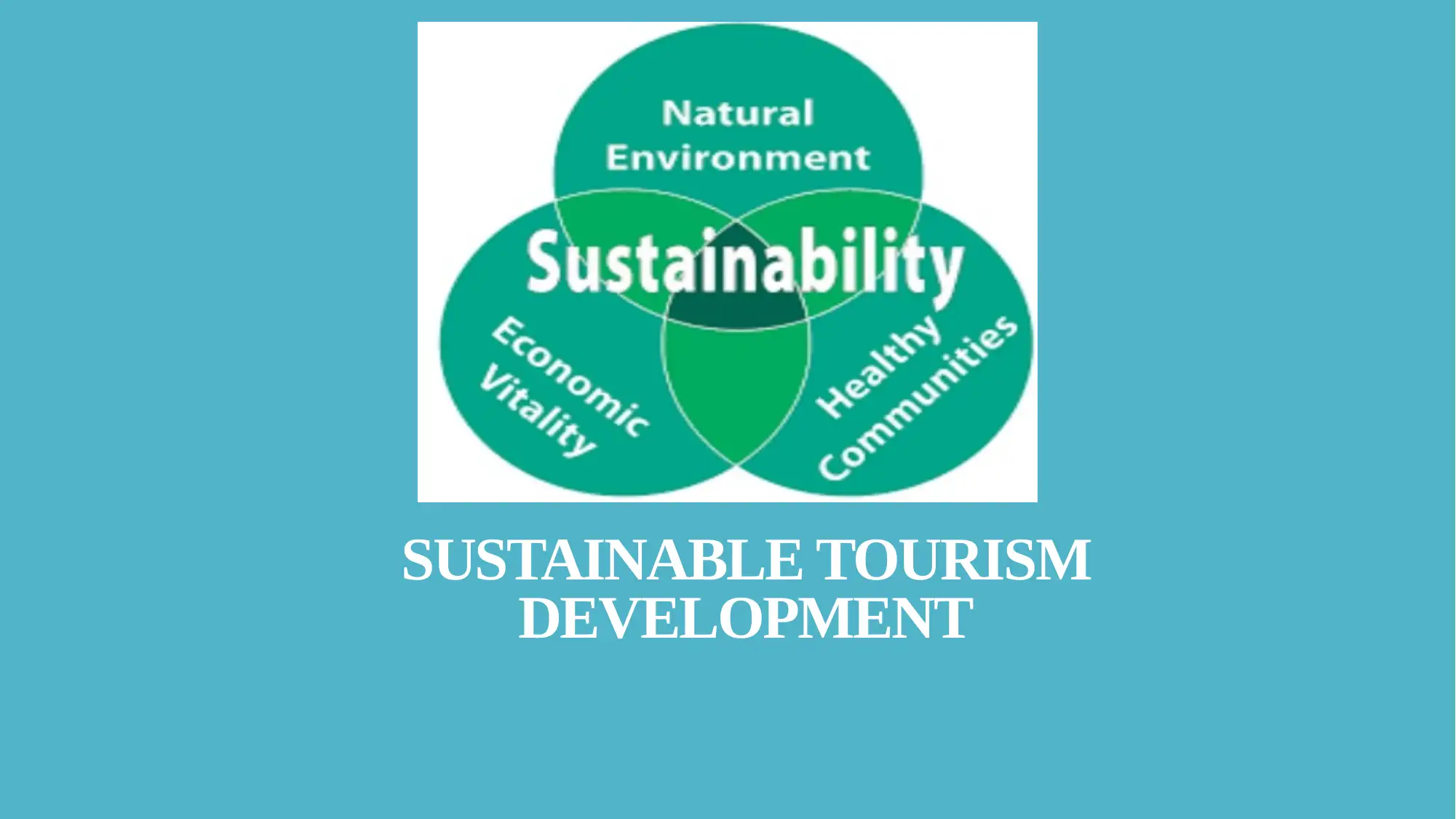
SUSTAINABLE TOURISM
DEVELOPMENT
DEVELOPMENT
Paraphrase This Document
Need a fresh take? Get an instant paraphrase of this document with our AI Paraphraser
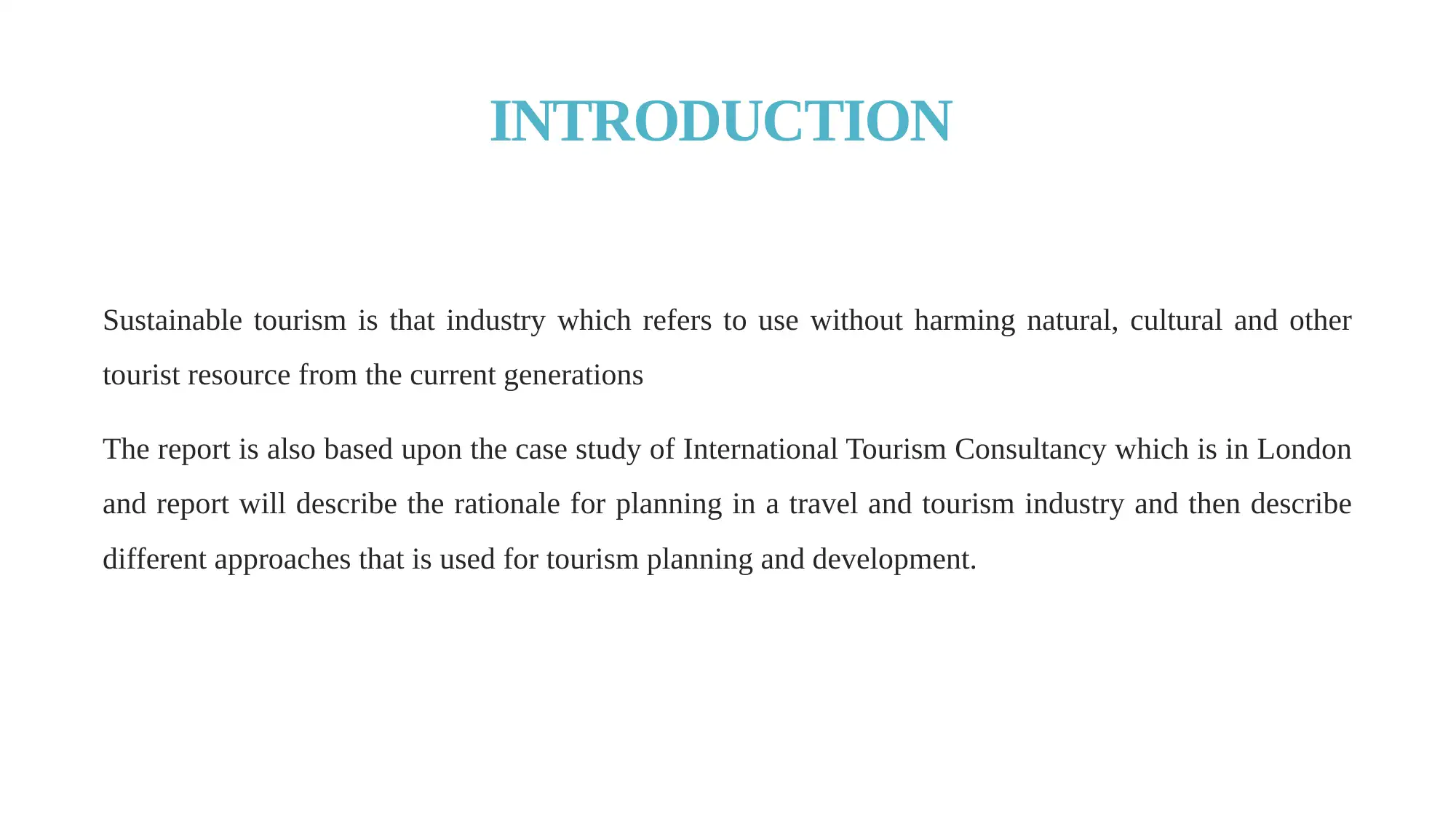
INTRODUCTION
Sustainable tourism is that industry which refers to use without harming natural, cultural and other
tourist resource from the current generations
The report is also based upon the case study of International Tourism Consultancy which is in London
and report will describe the rationale for planning in a travel and tourism industry and then describe
different approaches that is used for tourism planning and development.
Sustainable tourism is that industry which refers to use without harming natural, cultural and other
tourist resource from the current generations
The report is also based upon the case study of International Tourism Consultancy which is in London
and report will describe the rationale for planning in a travel and tourism industry and then describe
different approaches that is used for tourism planning and development.
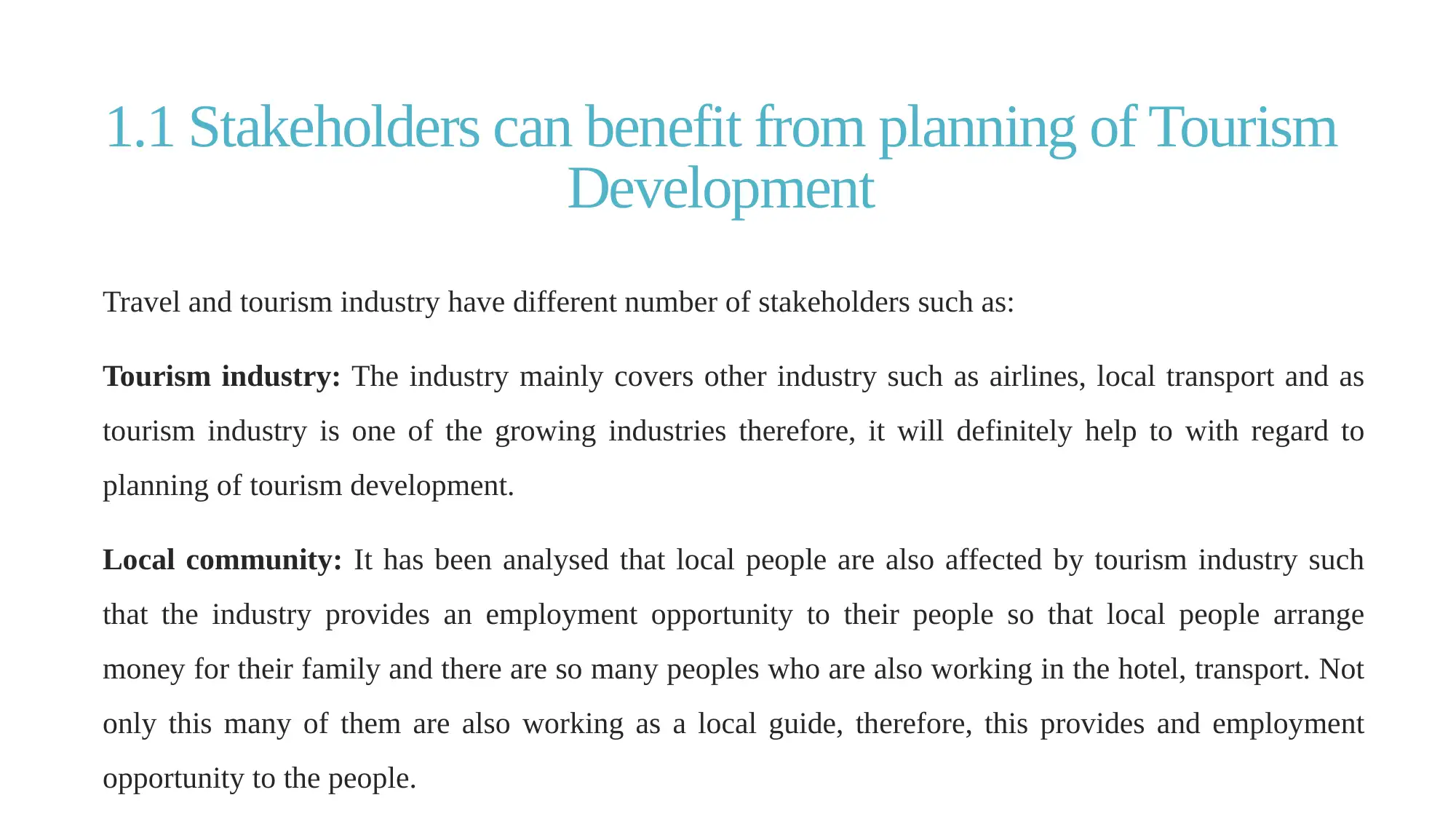
1.1 Stakeholders can benefit from planning of Tourism
Development
Travel and tourism industry have different number of stakeholders such as:
Tourism industry: The industry mainly covers other industry such as airlines, local transport and as
tourism industry is one of the growing industries therefore, it will definitely help to with regard to
planning of tourism development.
Local community: It has been analysed that local people are also affected by tourism industry such
that the industry provides an employment opportunity to their people so that local people arrange
money for their family and there are so many peoples who are also working in the hotel, transport. Not
only this many of them are also working as a local guide, therefore, this provides and employment
opportunity to the people.
Development
Travel and tourism industry have different number of stakeholders such as:
Tourism industry: The industry mainly covers other industry such as airlines, local transport and as
tourism industry is one of the growing industries therefore, it will definitely help to with regard to
planning of tourism development.
Local community: It has been analysed that local people are also affected by tourism industry such
that the industry provides an employment opportunity to their people so that local people arrange
money for their family and there are so many peoples who are also working in the hotel, transport. Not
only this many of them are also working as a local guide, therefore, this provides and employment
opportunity to the people.
⊘ This is a preview!⊘
Do you want full access?
Subscribe today to unlock all pages.

Trusted by 1+ million students worldwide
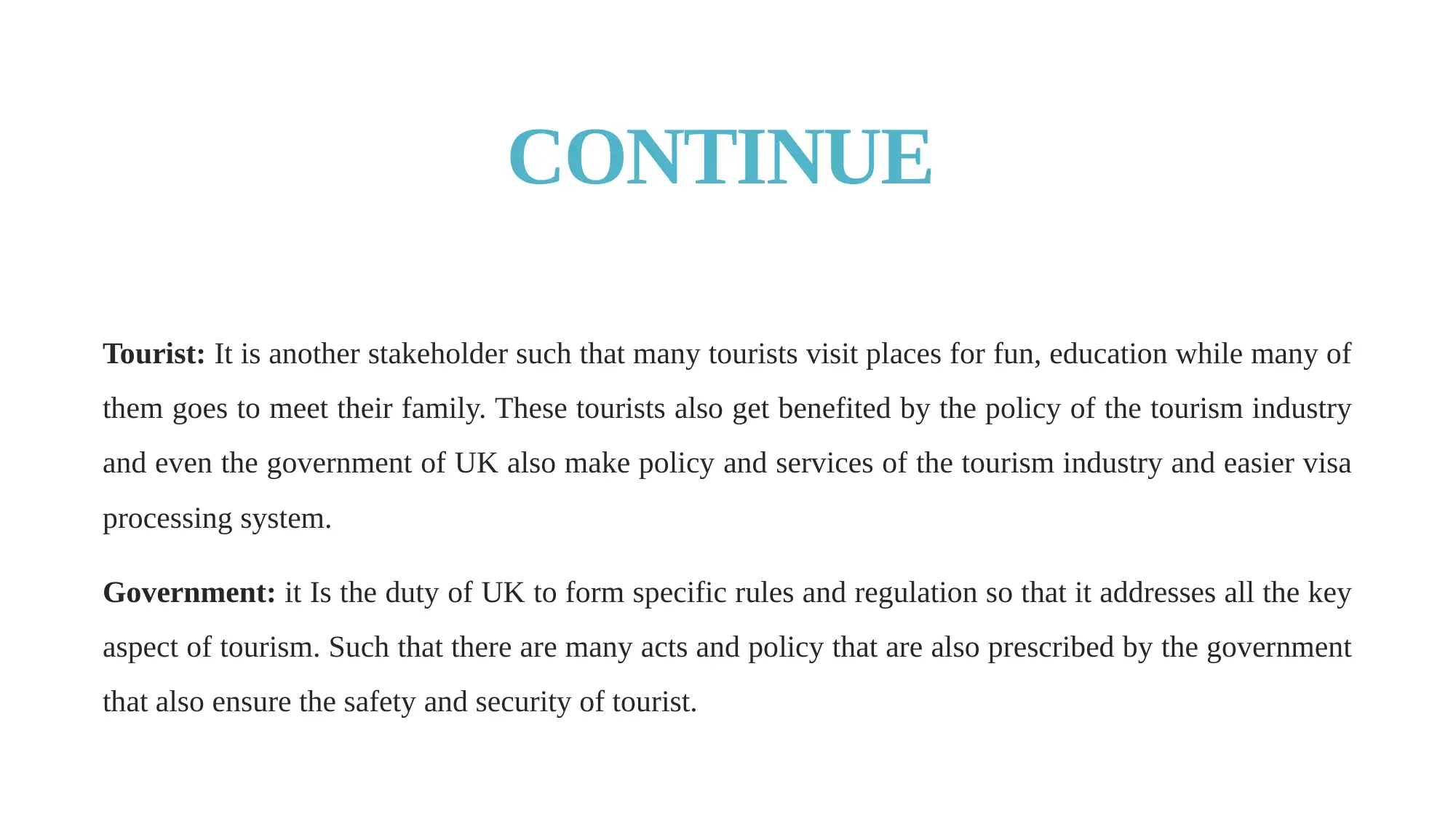
CONTINUE
Tourist: It is another stakeholder such that many tourists visit places for fun, education while many of
them goes to meet their family. These tourists also get benefited by the policy of the tourism industry
and even the government of UK also make policy and services of the tourism industry and easier visa
processing system.
Government: it Is the duty of UK to form specific rules and regulation so that it addresses all the key
aspect of tourism. Such that there are many acts and policy that are also prescribed by the government
that also ensure the safety and security of tourist.
Tourist: It is another stakeholder such that many tourists visit places for fun, education while many of
them goes to meet their family. These tourists also get benefited by the policy of the tourism industry
and even the government of UK also make policy and services of the tourism industry and easier visa
processing system.
Government: it Is the duty of UK to form specific rules and regulation so that it addresses all the key
aspect of tourism. Such that there are many acts and policy that are also prescribed by the government
that also ensure the safety and security of tourist.
Paraphrase This Document
Need a fresh take? Get an instant paraphrase of this document with our AI Paraphraser
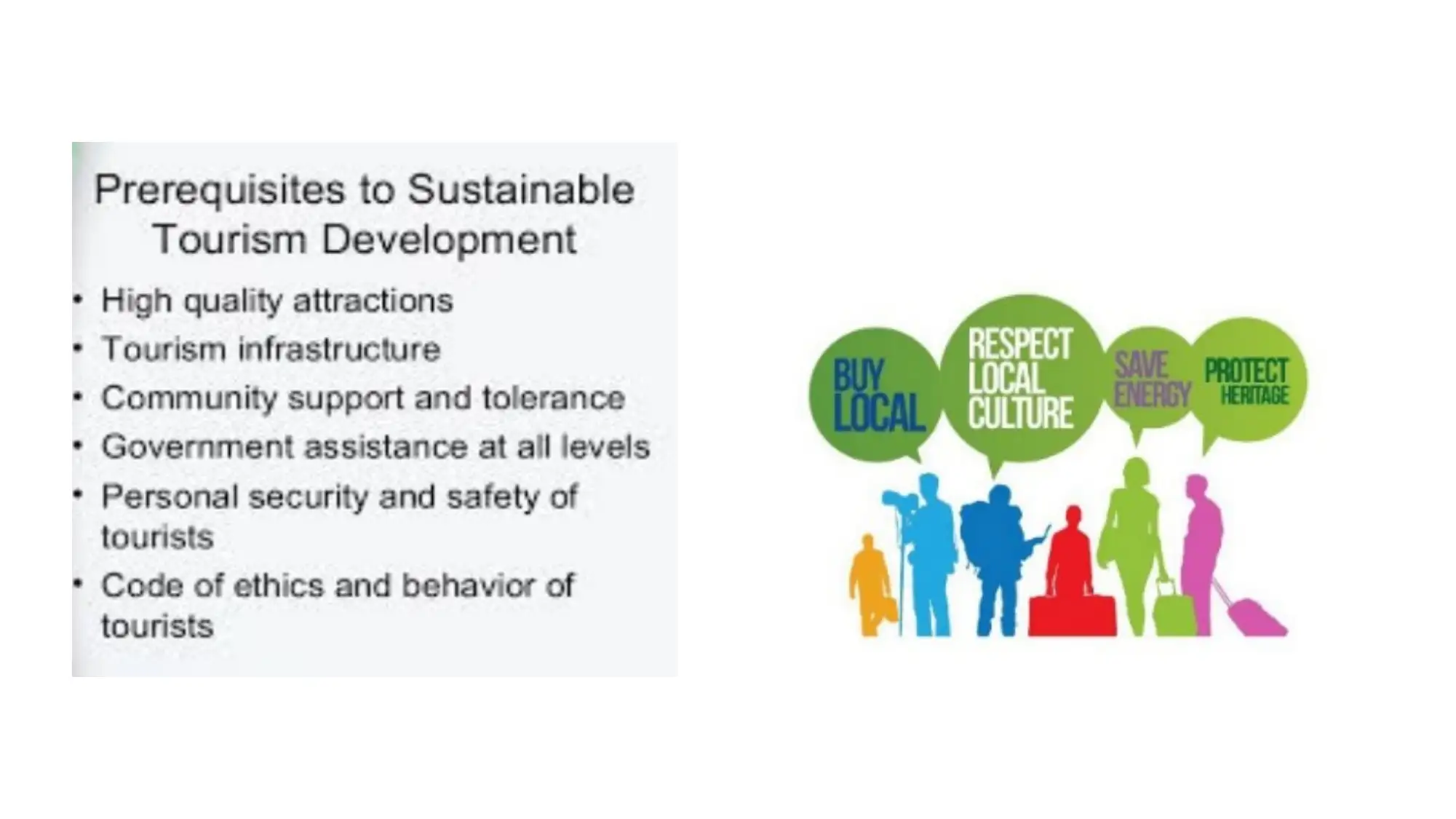
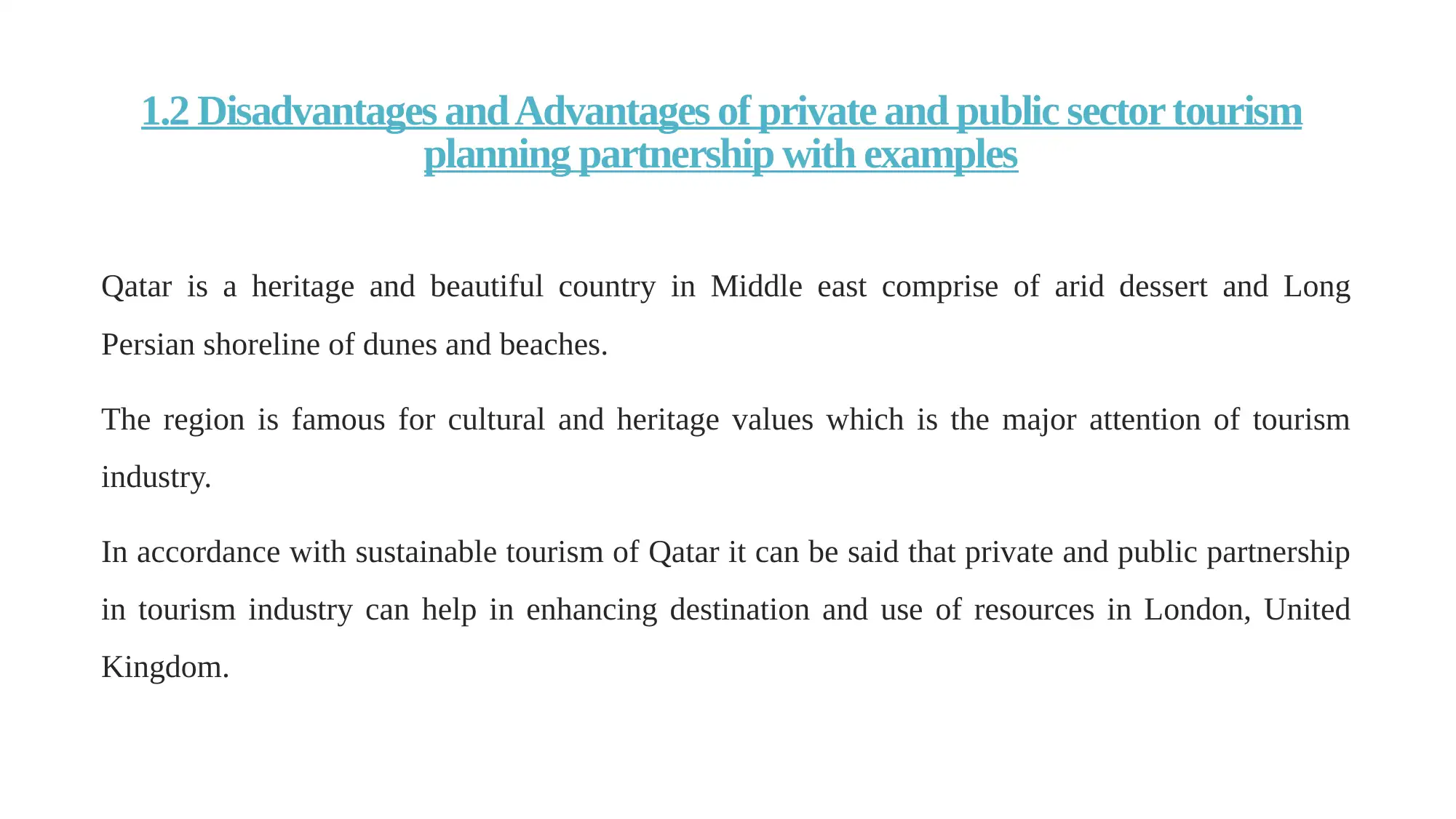
1.2 Disadvantages and Advantages of private and public sector tourism
planning partnership with examples
Qatar is a heritage and beautiful country in Middle east comprise of arid dessert and Long
Persian shoreline of dunes and beaches.
The region is famous for cultural and heritage values which is the major attention of tourism
industry.
In accordance with sustainable tourism of Qatar it can be said that private and public partnership
in tourism industry can help in enhancing destination and use of resources in London, United
Kingdom.
planning partnership with examples
Qatar is a heritage and beautiful country in Middle east comprise of arid dessert and Long
Persian shoreline of dunes and beaches.
The region is famous for cultural and heritage values which is the major attention of tourism
industry.
In accordance with sustainable tourism of Qatar it can be said that private and public partnership
in tourism industry can help in enhancing destination and use of resources in London, United
Kingdom.
⊘ This is a preview!⊘
Do you want full access?
Subscribe today to unlock all pages.

Trusted by 1+ million students worldwide
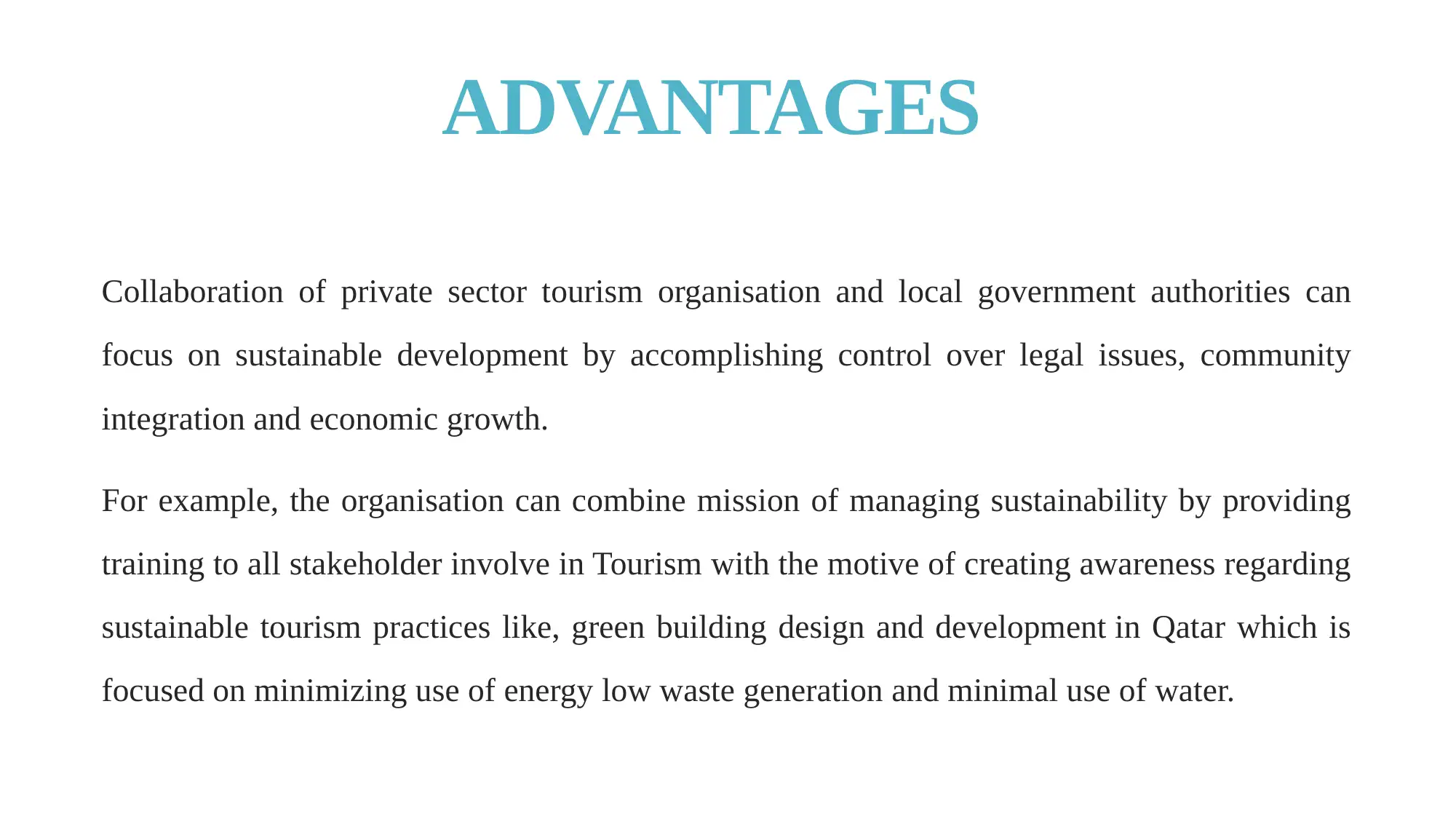
ADVANTAGES
Collaboration of private sector tourism organisation and local government authorities can
focus on sustainable development by accomplishing control over legal issues, community
integration and economic growth.
For example, the organisation can combine mission of managing sustainability by providing
training to all stakeholder involve in Tourism with the motive of creating awareness regarding
sustainable tourism practices like, green building design and development in Qatar which is
focused on minimizing use of energy low waste generation and minimal use of water.
Collaboration of private sector tourism organisation and local government authorities can
focus on sustainable development by accomplishing control over legal issues, community
integration and economic growth.
For example, the organisation can combine mission of managing sustainability by providing
training to all stakeholder involve in Tourism with the motive of creating awareness regarding
sustainable tourism practices like, green building design and development in Qatar which is
focused on minimizing use of energy low waste generation and minimal use of water.
Paraphrase This Document
Need a fresh take? Get an instant paraphrase of this document with our AI Paraphraser
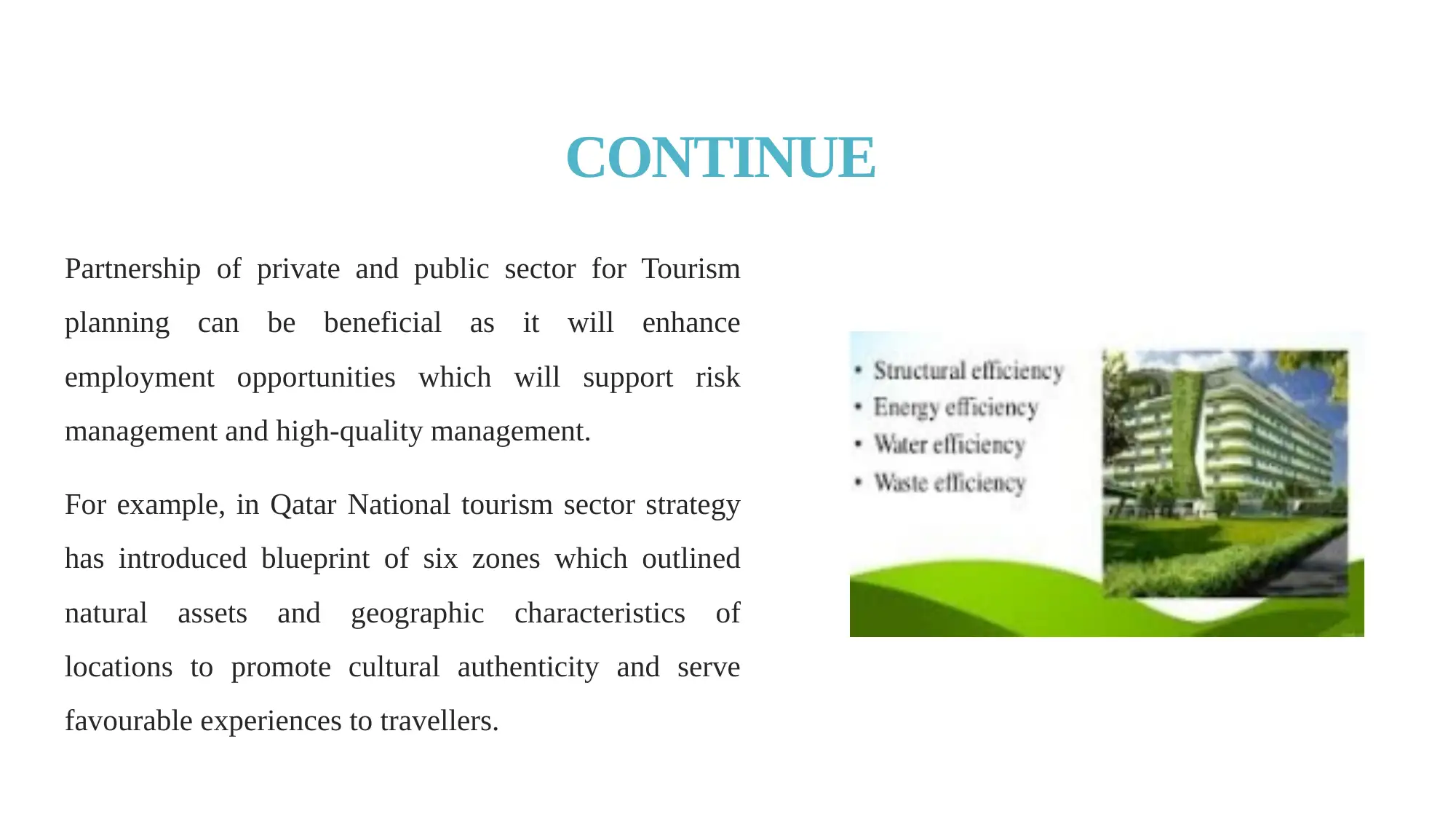
CONTINUE
Partnership of private and public sector for Tourism
planning can be beneficial as it will enhance
employment opportunities which will support risk
management and high-quality management.
For example, in Qatar National tourism sector strategy
has introduced blueprint of six zones which outlined
natural assets and geographic characteristics of
locations to promote cultural authenticity and serve
favourable experiences to travellers.
Partnership of private and public sector for Tourism
planning can be beneficial as it will enhance
employment opportunities which will support risk
management and high-quality management.
For example, in Qatar National tourism sector strategy
has introduced blueprint of six zones which outlined
natural assets and geographic characteristics of
locations to promote cultural authenticity and serve
favourable experiences to travellers.
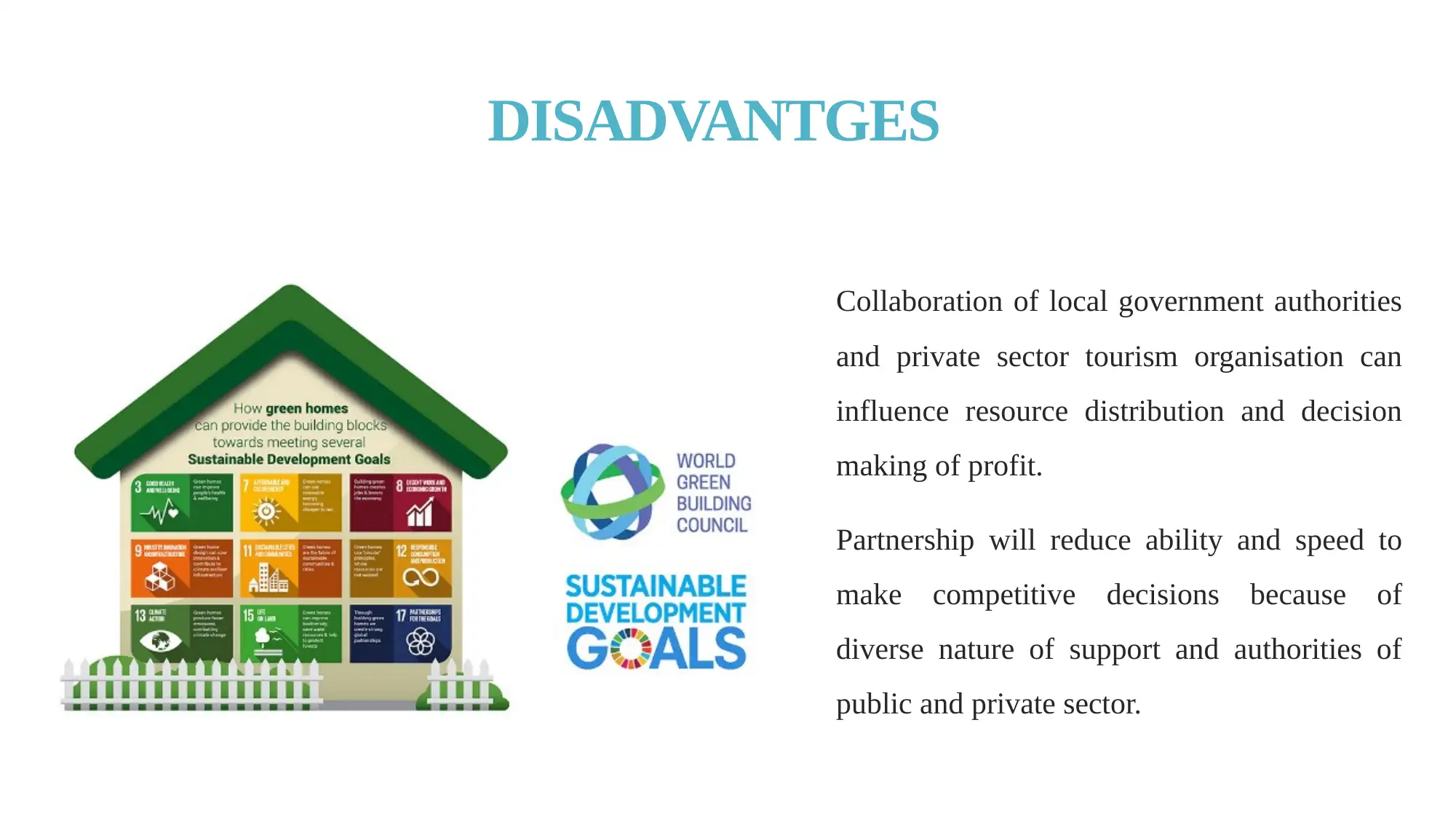
DISADVANTGES
Collaboration of local government authorities
and private sector tourism organisation can
influence resource distribution and decision
making of profit.
Partnership will reduce ability and speed to
make competitive decisions because of
diverse nature of support and authorities of
public and private sector.
Collaboration of local government authorities
and private sector tourism organisation can
influence resource distribution and decision
making of profit.
Partnership will reduce ability and speed to
make competitive decisions because of
diverse nature of support and authorities of
public and private sector.
⊘ This is a preview!⊘
Do you want full access?
Subscribe today to unlock all pages.

Trusted by 1+ million students worldwide
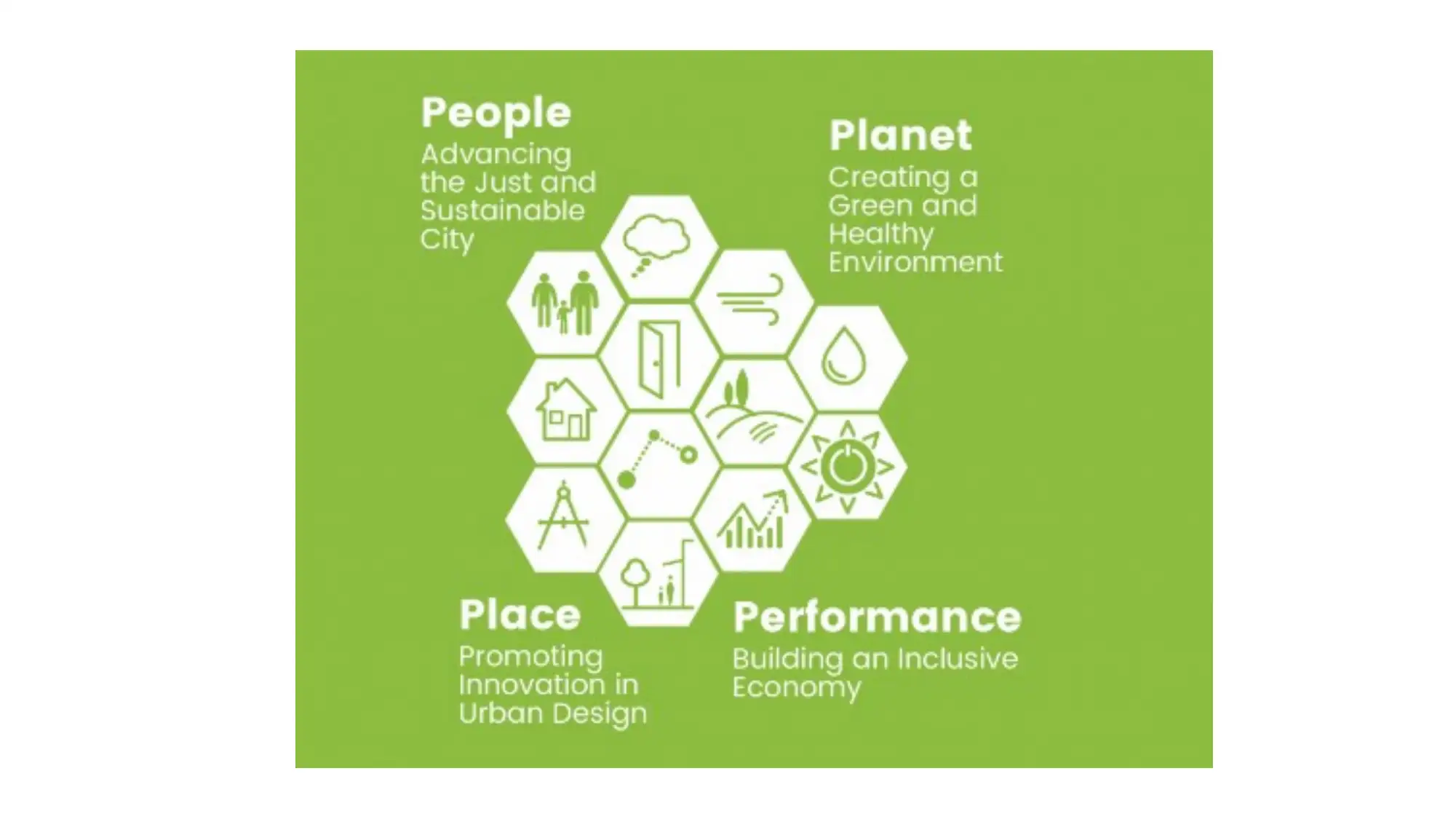
Paraphrase This Document
Need a fresh take? Get an instant paraphrase of this document with our AI Paraphraser
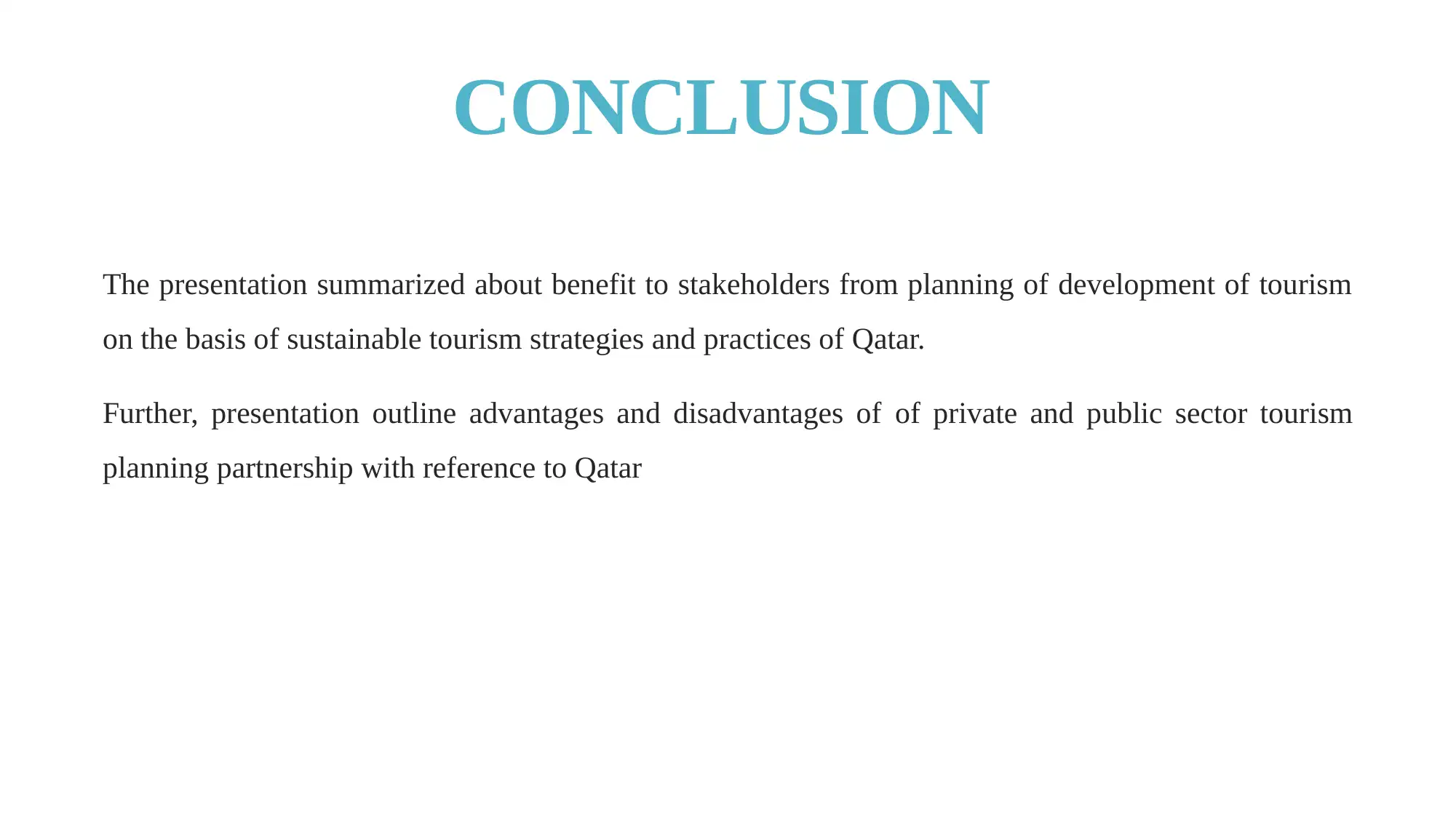
CONCLUSION
The presentation summarized about benefit to stakeholders from planning of development of tourism
on the basis of sustainable tourism strategies and practices of Qatar.
Further, presentation outline advantages and disadvantages of of private and public sector tourism
planning partnership with reference to Qatar
The presentation summarized about benefit to stakeholders from planning of development of tourism
on the basis of sustainable tourism strategies and practices of Qatar.
Further, presentation outline advantages and disadvantages of of private and public sector tourism
planning partnership with reference to Qatar
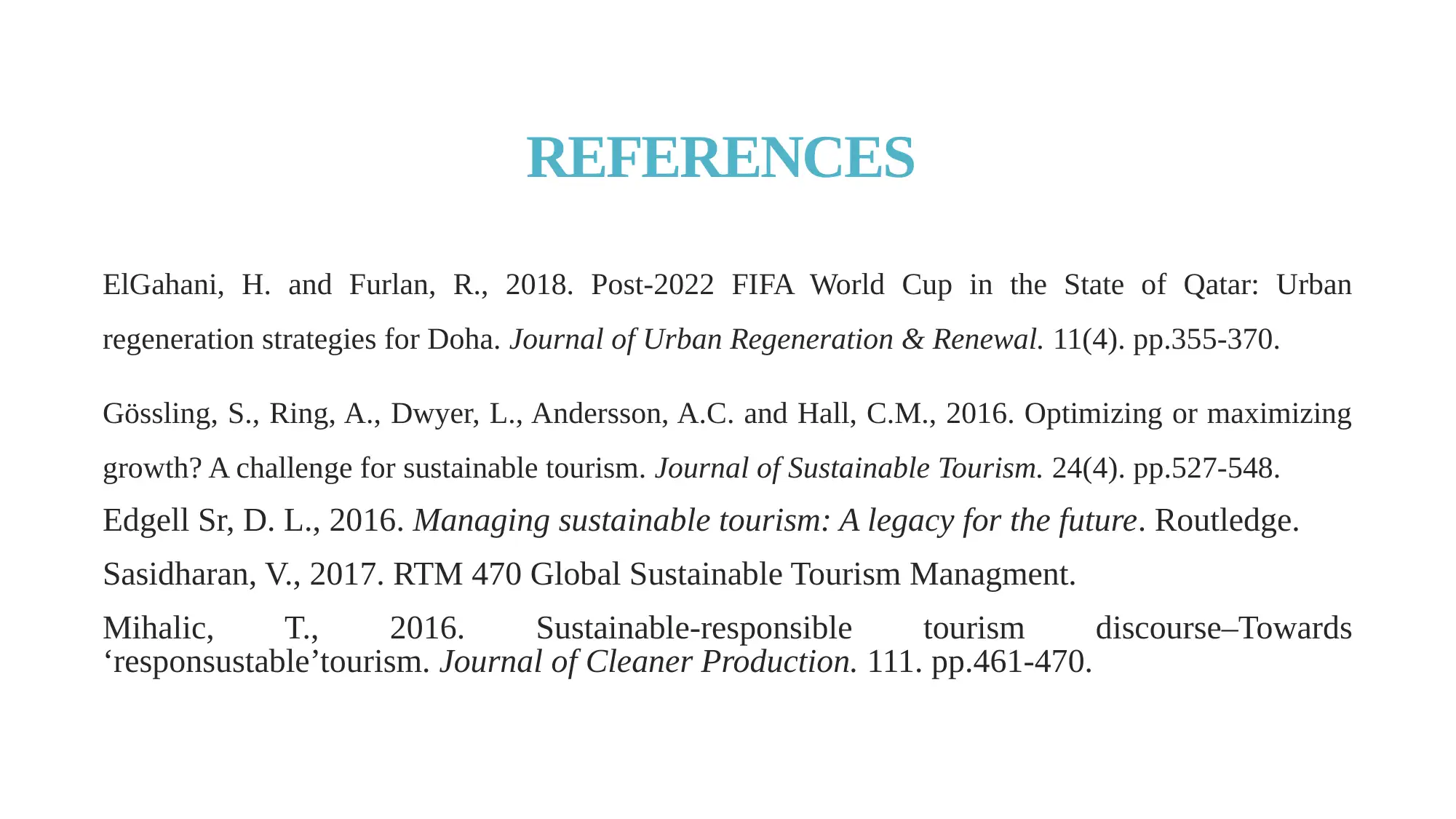
REFERENCES
ElGahani, H. and Furlan, R., 2018. Post-2022 FIFA World Cup in the State of Qatar: Urban
regeneration strategies for Doha. Journal of Urban Regeneration & Renewal. 11(4). pp.355-370.
Gössling, S., Ring, A., Dwyer, L., Andersson, A.C. and Hall, C.M., 2016. Optimizing or maximizing
growth? A challenge for sustainable tourism. Journal of Sustainable Tourism. 24(4). pp.527-548.
Edgell Sr, D. L., 2016. Managing sustainable tourism: A legacy for the future. Routledge.
Sasidharan, V., 2017. RTM 470 Global Sustainable Tourism Managment.
Mihalic, T., 2016. Sustainable-responsible tourism discourse–Towards
‘responsustable’tourism. Journal of Cleaner Production. 111. pp.461-470.
ElGahani, H. and Furlan, R., 2018. Post-2022 FIFA World Cup in the State of Qatar: Urban
regeneration strategies for Doha. Journal of Urban Regeneration & Renewal. 11(4). pp.355-370.
Gössling, S., Ring, A., Dwyer, L., Andersson, A.C. and Hall, C.M., 2016. Optimizing or maximizing
growth? A challenge for sustainable tourism. Journal of Sustainable Tourism. 24(4). pp.527-548.
Edgell Sr, D. L., 2016. Managing sustainable tourism: A legacy for the future. Routledge.
Sasidharan, V., 2017. RTM 470 Global Sustainable Tourism Managment.
Mihalic, T., 2016. Sustainable-responsible tourism discourse–Towards
‘responsustable’tourism. Journal of Cleaner Production. 111. pp.461-470.
⊘ This is a preview!⊘
Do you want full access?
Subscribe today to unlock all pages.

Trusted by 1+ million students worldwide
1 out of 13
Related Documents
Your All-in-One AI-Powered Toolkit for Academic Success.
+13062052269
info@desklib.com
Available 24*7 on WhatsApp / Email
![[object Object]](/_next/static/media/star-bottom.7253800d.svg)
Unlock your academic potential
Copyright © 2020–2026 A2Z Services. All Rights Reserved. Developed and managed by ZUCOL.





